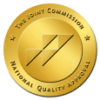CBT for Addiction in Tennessee
At Tennessee Detox Center, cognitive behavioral therapy is a core, evidence-based approach that anchors care from the first day of treatment through aftercare. CBT is practical and teachable. It helps you see how a thought sparks a feeling, how that feeling drives an action, and where a small, targeted shift can change the outcome. Used this way, CBT for addiction in Tennessee becomes a clear framework you can lean on during busy, stressful days.
In session, you learn to name triggers, map high-risk windows, and challenge automatic thoughts that fuel urges or avoidance. Between sessions, you run short, repeatable skills—breathing resets, if–then plans, craving sequences, and scripts for tough conversations—so progress shows up in real life, not just on a worksheet.
Over time, those skills reduce the risk of relapse, promote steady sleep and mood, and make the next right choice easier to achieve.
This page explains how CBT fits into detox, residential rehab, outpatient programming, and aftercare at Tennessee Detox Center, and why it pairs well with medical support, family education, and peer accountability across addiction therapy in Tennessee.
Whether you’re starting treatment for the first time or returning after a lapse, CBT gives you a roadmap: notice the pattern, test a small change, keep what works, and repeat until it becomes a habit.
What Cognitive Behavioral Therapy Is
Cognitive behavioral therapy is a structured form of talk therapy that connects thoughts, emotions, and behaviors. Situations arise, your mind makes sense of them, feelings emerge, and you respond.
CBT slows that chain long enough for you to see where it goes off track and where a small intervention—like a thought check or a two-minute skill—can shift the outcome. The method is collaborative and goal-driven, so you always know what you are practicing and why.
At Tennessee Detox Center, CBT targets triggers, high-risk patterns, and automatic thoughts that sit just ahead of use. You will map the day by risk hour, identify people and places that pull you off course, and examine fast beliefs such as “I already blew it” or “I can’t sleep without it.”
In session, you test alternatives that are believable and doable; between sessions, you try them in the moments that matter. This is cognitive behavioral therapy for addiction that Tennessee clients can use immediately.
CBT happens in both individual and group settings at TDC. Individual therapy focuses on assessment, goal setting, and tailoring tools to your schedule. Group work incorporates practice and peer feedback, such as urge surfing, delay-and-distract plans, communication scripts, and problem-solving drills, so that skills become automatic under pressure. Homework is brief by design: one worksheet, one skill run, one check-in. The result is a steady change you can measure week to week.
Because CBT is flexible, it adapts to alcohol, opioid, stimulant, and cannabis concerns as well as co-occurring anxiety, depression, trauma-related stress, and sleep problems. Used alongside medical care and family support, CBT therapy for substance abuse in TN helps you interrupt the cycle, build coping capacity, and carry recovery into everyday life.
Benefits of CBT in Addiction Care
Cognitive behavioral therapy gives recovery a clear playbook and has strong evidence for lowering relapse risk. By teaching you to spot triggers early and run short, repeatable responses, CBT shrinks the number of high-risk moments that turn into use.
You practice skills in session, then apply them during the exact hours that tend to wobble—after work, late at night, or during stressful conversations—so progress shows up in real life.
CBT also relieves common mental health symptoms that fuel cravings. Clients often report steadier mood, fewer spikes of anxiety, and less reactivity to trauma-related stress once they learn grounding, thought checks, and breathing drills. These tools calm the nervous system without relying on substances, which improves sleep and decision-making.
Over time, CBT helps strengthen problem-solving, emotion regulation, and communication skills. You learn to break big problems into small steps, ride out urges without white-knuckling, and speak clearly under pressure.
Those gains support relationships, school, and work areas that often strain during the early stages of recovery. If you are comparing options for addiction therapy in Tennessee, CBT is a dependable core that pairs well with medical support, family education, and peer accountability to keep momentum moving in the right direction.
How CBT Works Step by Step
Assessment and goal setting
CBT begins with a focused assessment. Your clinician maps recent use, high-risk windows by time of day, sleep and mood patterns, and the people or places that intensify urges.
Together, you set outcome goals (fewer cravings, steadier sleep, and consistent attendance) and process goals (running a wind-down routine nightly, using a craving sequence during the commute, and practicing one boundary script this week).
Clear targets make behavioral therapy for addiction in Tennessee practical and measurable from the start.
Next, you learn to catch the fast thoughts that fire before you reach for a substance or avoid a hard task. For several days, you jot quick notes: situation, thought, feeling, action.
In session, you test those thoughts against facts and reframe them into believable alternatives. “I blew it, today is ruined” becomes “I slipped at noon; I can still protect my afternoon.” “I cannot handle stress without using” becomes “I can handle ten minutes, then recheck.”
Small, credible shifts lower emotional spikes and create space for better choices.
CBT is hands-on. You and your therapist design short experiments to challenge the old pattern. If evenings are risky, you try a three-step routine before the usual urge window: hydration, a five-minute task, and a check-in with a peer.
You change routes to avoid cues, move alcohol or paraphernalia out of immediate reach, or delay the first drink by fifteen minutes while running paced breathing.
Skills are rehearsed in sessions—such as urge surfing, grounding through the senses, and problem-solving steps—and then deployed in real life until they feel automatic.
Every week ends with a micro-plan: what to practice, when to practice it, and how you will know it worked. Homework is brief by design—one worksheet, one skill run, one message to an accountability partner.
Your relapse-prevention plan grows as you go, listing early warning signs, if-then responses, high-risk hours, and a first-hour rescue script. By discharge, you have a living document you can follow on busy days and update during aftercare.
Examples tailored to specific substances
- Alcohol: Common triggers include social pressure, sleep worries, and end-of-day relief. Cognitive restructuring targets beliefs, such as “I need a drink to relax,” and replaces them with a timed wind-down and realistic alternatives. Behavioral experiments include refusal scripts, a pre-event plan with a leave-early cue, and swapping the first thirty minutes after work with activities such as food, movement, and a supportive call. This is how CBT for alcohol addiction in Tennessee clients reduces high-risk moments without isolating from the community or work.
- Opioids: Pain, sleep disruption, and catastrophic thinking often drive urges. You map pain-thought-action loops and test non-sedating routines first, such as scheduled movement, heat or cold therapy, paced breathing, and distraction sets, before evaluating medication needs with your healthcare provider. Thought work replaces “pain means I cannot function” with graded activity plans. Skills lower distress quickly, so choices align with recovery.
- Stimulants: Triggers cluster around fatigue, long gaps without food, and perfectionism. You build a predictable fuel and sleep plan, schedule micro-breaks, and challenge all-or-nothing thinking after mistakes. Experiments include moving demanding tasks out of red-zone hours, using brief activation to beat morning inertia, and creating technology boundaries that reduce late-night spirals. Peer accountability closes the loop.
- Cannabis: Themes include sleep anxiety and boredom. You stack a layered bedtime routine that fits your clock, add an “after-work first thirty minutes” menu, and reframe “I cannot sleep without it” into “I can stack three cues and evaluate.” Rewards reinforce success and maintain steady motivation.
Across substances, CBT for drug addiction in Tennessee blends thought change with action change. You see the pattern, try a small shift, measure what happened, and keep what works. Session by session, the skills stack into habits that make the safer choice the easier one.
Who CBT Is For
CBT fits people with substance use disorders at any stage. If you are just starting, it gives you a map for triggers and a plan for the next twenty-four hours. If you are further along, it helps tighten routines, prevent drift, and manage new stress without slipping into old patterns. The approach is collaborative and paced to your readiness.
It is also a strong choice for dual diagnosis, high stress, and sleep disturbance. CBT helps you separate withdrawal discomfort from anxiety, challenge catastrophic thoughts, and build layered sleep routines that do not rely on substances. It integrates smoothly with medication management and other therapies, so nothing is treated in isolation.
Because CBT is flexible, it works in inpatient rehab, outpatient programs, and aftercare. In residential settings, you build core skills with daily practice. In IOP or standard outpatient settings, you test those skills in real-life situations with weekly reviews. In aftercare, you keep a light cadence that refreshes relapse-prevention tools.
For anyone seeking CBT for addiction treatment in Tennessee or a cognitive behavioral therapy rehab Tennessee program, CBT offers a practical, evidence-based path you can carry from the therapy room into everyday life.
CBT Across the Continuum of Care
Cognitive behavioral therapy is the thread that runs through every step of treatment at Tennessee Detox Center. No matter where you enter care, the language and tools stay consistent: notice the pattern, test a small change, keep what works.
That continuity makes CBT for addiction in Tennessee practical, day-to-day and easy to carry forward as responsibilities return.
In detox, the focus is stabilization, grounding, and simple skills. Sessions are brief and calm. You learn two or three cues that lower arousal, a quick thought check to reduce panic, and a short sleep routine you can run the first night. The aim is to leave medical stabilization with a workable starter kit, not just instructions.
Residential rehab deepens the work with a core CBT curriculum and skills labs. You map triggers by hour, identify automatic thoughts, and practice coping sequences for cravings, conflict, and fatigue. Role plays and worksheets turn ideas into muscle memory. By discharge, you have a small set of routines that hold up under pressure.
Outpatient and Intensive Outpatient Programs bring real-life practice with weekly reviews. Several sessions each week support work, school, and family while you run experiments between visits. You track what helped, where friction appeared, and how to adjust the plan. That rhythm keeps progress stacking outside the clinic.
Aftercare keeps momentum steady. You meet for relapse-prevention refreshers, update your high-risk map, and stay connected to peers and alumni supports. This detox rehab and aftercare community provides prompt feedback when stress levels rise, offering a clear path back to a steadier footing.
Across every level, CBT provides a common playbook—grounded, repeatable, and tailored to your schedule—so the next right step is always within reach.
Program Features at Tennessee Detox Center
Tennessee Detox Center delivers cognitive behavioral therapy as a foundational element of care, led by licensed CBT therapists and experienced addiction specialists.
Clinicians combine clinical depth with a practical style, so skills translate to real-life situations at work, school, and home. For anyone considering a cognitive behavioral therapy rehab option in Tennessee, the emphasis is on measurable progress that is immediately usable from the first week.
Care is organized around several formats that work together. Individual therapy focuses on assessment, goal setting, and tailoring tools to your schedule. You and your therapist map triggers by time of day, challenge automatic thoughts, and set a short practice plan for the days ahead.
Process groups add peer perspective and honest feedback. Clients share what worked during cravings, conflict, or fatigue and learn from each other’s strategies. Skills groups function like labs where you rehearse thought checks, urge surfing, if–then coping plans, communication scripts, and sleep resets until they feel automatic.
Dual diagnosis integration is standard. If anxiety, depression, trauma-related stress, attention problems, pain, or sleep disturbance are part of the picture, your CBT therapist coordinates with psychiatry and medical providers so nothing is treated in isolation.
Medication management is available when indicated, with clear explanations, side effect checks, and adjustments that support therapy rather than replace it. This alignment ensures the plan is both safe and effective, reflecting a whole-person approach to addiction therapy in Tennessee.
Family involvement is offered with your consent. Education sessions translate CBT concepts into practical tools that can be applied at home. Families learn calm communication, boundary setting, and early warning sign checklists.
Structured meetings reduce conflict and create a shared plan for the hours that are often the most challenging, such as late evenings and weekends. Updates are always consent-based and respect privacy preferences.
Relapse prevention is integrated into every level of care. You leave each phase with a written map that identifies high-risk windows, lists if–then responses, and names who to contact in the first hour if stress spikes.
Life skills development rounds out the program. You will practice time blocking for busy schedules, budgeting basics, simple meal and sleep routines, and step-by-step problem solving you can use under pressure.
With licensed specialists, coordinated medical support, genuine family involvement, and a skills-first approach, Tennessee Detox Center offers a CBT program that you can apply to everyday life and continue using long after treatment concludes.
CBT for Alcohol Addiction in Tennessee
Alcohol is woven into many parts of life in Tennessee, from after-work drinks to weekend gatherings and game days. Cognitive behavioral therapy helps you identify the exact moments where risk increases and provides you with small, repeatable steps to change what happens next.
Common triggers in social and work settings include end-of-day relief after a stressful shift, happy hours where “just one” turns into several, networking events with circulating drinks, restaurant or bar jobs with constant exposure, and quiet nights when sleep feels impossible without alcohol.
In CBT for alcohol addiction in Tennessee, you map these situations by time of day and context—who you are with, how you feel, what you expect to happen—so you can intervene earlier.
A core part of CBT is restructuring beliefs that keep alcohol in charge. Many people carry automatic thoughts like “I need a drink to relax,” “I cannot sleep without it,” or “Saying no will make things awkward.”
In session, you test each thought against evidence and craft balanced alternatives. “I need a drink to relax” becomes “I can stack two quick cues—breathing plus a hot shower—then reassess in fifteen minutes.” “I cannot sleep without it” becomes “I can try a three-step wind-down and evaluate tomorrow.” “It will be awkward to say no” becomes “I can decline once, smile, and change the subject—most people move on.”
These reframes lower the emotional spike that drives automatic drinking and open the door to different choices.
Refusal skills and high-risk event planning are practical and specific. You will rehearse short lines that fit your voice: “I am good with this,” “I am the ride,” “Early morning tomorrow,” or “I am on a reset.”
We pair each script with an action, such as holding a non-alcoholic drink, standing near supportive people, and setting a cue to leave early. For higher-risk settings—reunions, weddings, big games—you create a mini-plan: where you will stand, who you will text at the ninety-minute mark, what you will say if pressed, and how you will exit if pressure rises.
You also plan the first thirty minutes after the event, so you don’t fall into a late-night spiral when adrenaline drops.
Weekly habit mapping keeps momentum honest. Together, we chart your week by red-zone hours and build an alternative routine for each one. After work, it might involve grabbing water, a quick bite to eat, five minutes of movement, and then a call to a peer. Evenings could include a set wind-down—dim lights, warm shower, breathing drill, and a short read—that takes ten to fifteen minutes, not an hour.
Weekends get their own design: morning plans that pull you out of the house, a midday check-in, and a late-afternoon buffer when cravings often rise.
You will also adjust cues in your environment by moving alcohol out of immediate reach, changing routes that pass favorite spots, and stocking satisfying non-alcoholic options.
CBT provides coping tools that you can use anywhere. Urge surfing teaches you to ride cravings like waves that rise and fall, rather than emergencies you must obey. Delay-and-distract sequences buy time while intensity drops. Thought records help you catch all-or-nothing thinking after a slip and pivot back to the next right step instead of writing off the day.
Each week ends with a micro-plan—two or three actions you will test before the next session—and a quick review of what worked.
Used this way, CBT for alcohol addiction in Tennessee turns vague intentions into concrete routines. You learn what to do in the first five minutes after work, how to decline without drama, and how to sleep without alcohol.
The result is fewer high-risk moments, calmer nights, and a recovery plan that fits your real life.
CBT for Drug Addiction in Tennessee
Cognitive behavioral therapy helps you understand craving as a cycle with a beginning, middle, and end rather than a command you must follow. In CBT for drug addiction in Tennessee, you map the chain for each substance, then practice skills that interrupt it early and often.
For opioids, cues may include pain spikes, certain routes, or seeing pill bottles. For stimulants, cues usually appear after long gaps without food or sleep, during perfectionistic work sprints, or when boredom hits.
Sedative use can be tied to evening anxiety or fear of not sleeping. Cannabis patterns may cluster around transitions, gaming, or late-night wind-downs. You learn to name these prompts, rate their intensity, and choose a response that lowers the wave rather than feeds it.
Cue exposure is paced and planned. In the session, you rehearse what to do when the cue appears, then test it in real life with support. For opioid cues, you practice a two-minute pain reset before evaluating any next step. For stimulant cues, you run a fuel and water sequence, complete a five-minute task, and message a peer to shift the loop.
For sedative cues, try layered sleep strategies that start an hour earlier to reduce the late-night spiral. For cannabis cues, you set a structured first thirty minutes after work, so downtime does not slide into automatic use. Each exposure is followed by a brief debrief, allowing the plan to become sharper each week.
Behavioral activation replaces avoidance with small, doable actions that build momentum. When energy is low, schedule two simple tasks that take less than five minutes each, followed by one longer task after a brief break. The goal is to move, not to perfect.
Over time, activity plans are matched to the clock you live on.
A morning activation might include a light breakfast, a short walk, and some gentle exercise. Midday activation could be a checklist item and a call to action. Evening activation becomes a brief reset that prevents long stretches of unstructured time, the hour when many people tend to slip.
Coping plans address pain, sleep, and mood swings because these are common drivers of use. Pain management plans begin with non-sedating steps, such as applying heat or cold, gentle mobility exercises, hydration, and paced breathing, followed by a gradual increase in activity.
You and your provider discuss medication choices when appropriate, with clear guidelines that support recovery. Sleep plans rely on stacking cues that are easy to run even after long days.
Dim lights, a shower, a brief breathing drill, and a realistic cutoff for screens can be enough to switch the body into rest mode. Mood plans focus on thought checks and quick regulation skills.
You learn to spot catastrophizing, use neutral language, and apply grounding when anger or sadness spikes. Short wins stabilize the day and reduce the urge to self-medicate.
Throughout treatment, you keep a brief record of what you tried and how it worked. That data guides the next experiment and builds confidence that cravings can be ridden out. Each week ends with two or three actions to test and a plan for the exact hours that tend to wobble.
Used this way, CBT for drug addiction in Tennessee turns insight into action. You see the pattern, choose a small shift, measure the result, and keep what works until safer choices become your default.
Dual Diagnosis Integration with CBT
Many people arrive with more than substance use to address. Anxiety, depression, trauma-related symptoms, and attention difficulties often sit alongside cravings and sleep problems.
Cognitive behavioral therapy works well in this mixed picture because it provides clear tools for both tracks simultaneously.
In CBT therapy for substance abuse, TN, your plan includes targeted skills for mental health symptoms and concrete steps for addiction, woven into a single schedule you can follow.
For anxiety, CBT teaches you to spot the thought patterns that spike fear and to practice brief regulation skills you can use anywhere. You will learn paced breathing, grounding through the senses, and simple exposure steps that shrink avoidance.
Thought checks help you replace catastrophic predictions with balanced statements and a next action. As anxiety drops, the urge to reach for quick relief fades.
For depression, CBT focuses on activation and traction. Together, you build a small routine that increases activity even when motivation is low. You start with two five-minute tasks, add one slightly longer task, and track mood before and after. Thought work addresses harsh self-talk and all-or-nothing thinking, which often fuels withdrawal from people and responsibilities. These shifts create small wins that lift energy and reduce risk.
Trauma-related symptoms are approached with safety as the priority. You learn stabilization skills, including breathing techniques, present-moment awareness, and body-based resets. Education about the nervous system explains why certain cues set off alarms.
When timing is right, trauma processing can be introduced at a pace that protects sleep and sobriety, with frequent check-ins and clear session boundaries so work remains tolerable and effective.
For individuals with attention difficulties, CBT emphasizes the importance of structure and cueing to support effective functioning. You and your therapist design simple checklists, visual timers, and if-then plans for common areas of difficulty. Short planning sessions at the start and end of the day keep tasks visible and prevent last-minute spirals that trigger cravings.
A key skill is learning to distinguish withdrawal discomfort from mental health symptoms. In early treatment, fatigue, irritability, and poor sleep can look like mood or anxiety problems. Your team helps you track timing and context, so you don’t medicate a temporary crash with a permanent decision. As the body stabilizes, the picture becomes clearer and the plan is refined.
Coordination keeps nothing in isolation. Your CBT clinician, medical provider, and, when needed, meet around one plan. Medication decisions are explained in plain language and paired with skills practice, so tools reinforce each other. Family involvement, when you consent, adds communication and boundary support at home.
The result is an integrated approach that steadies the nervous system, reduces triggers, and gives you a practical path to sustain recovery in daily life.
-
Family Education and Involvement
Recovery progresses more quickly when home and treatment share a common language. We translate core CBT concepts for families so support becomes practical, not guesswork. Loved ones learn how thoughts, feelings, and actions are interconnected, and how small changes—such as taking a brief pause before reacting or engaging in a neutral thought check—can help calm tense moments.
We share the same tools that clients use in sessions, including short breathing drills, grounding exercises through the senses, and if–then plans for high-risk hours, so everyone has a shared playbook.
Boundaries are taught with simple, repeatable scripts. Instead of vague promises, families practice clear lines that protect safety and respect autonomy: “I will talk after we both take five minutes,” “I cannot lend cash, but I can help plan groceries,” “If you miss curfew, we will revisit car access.”
Communication tools focus on calm tone, specific requests, and one change at a time.
We role-play common flashpoints—late nights, money stress, social invitations—until the words feel natural. Crisis steps are written in plain language, including early warning signs, a first-hour checklist, and contact information prioritized by urgency, so action replaces panic if the risk rises.
Updates are always consent-based. Clients decide who receives information and what can be shared with them. When everyone agrees, we establish a session cadence that accommodates real schedules—often starting with weekly sessions, then transitioning to biweekly or monthly sessions as stability increases.
Between sessions, families receive short practice items, such as one boundary to test or one five-minute wind-down routine to model at home, and we review what worked at the next visit.
Throughout, we keep the focus on skills that hold up on busy days. Families learn how to reinforce progress without policing, how to respond to slips as data for the next plan, and how to balance support with self-care.
For those comparing options in addiction therapy in Tennessee, this approach turns family involvement into a steady source of momentum: shared language, clear boundaries, fast crisis steps, and small wins that stack over time.
Skills Lab: Practical CBT Tools You Will Use
You will learn a simple thought record that takes just a few minutes to complete. First, write the situation in one sentence. Next, note the automatic thought that popped up and the feeling that followed.
Then test the idea with quick questions. What is the evidence for it? What is the evidence against it? What is a more balanced perspective on this? Finally, choose one small action that fits the balanced thought.
Over time, this helps transform big spikes of emotion into manageable steps, and you will have a written record that shows progress week by week.
Cravings rise, peak, and fall like waves. In the lab, you practice riding them without acting. Set a timer for two minutes and notice where the urge sits in your body, then breathe slowly while labeling the sensations.
When the timer ends, run a short delay and a distraction sequence. Drink water, walk for ninety seconds, text a peer, and do a five-minute task.
These short loops create enough space for the wave to break, reducing the likelihood of automatic use.
You and your therapist will map red zone hours across your week and build if-then plans for each. If it is the first thirty minutes after work, then I will eat, hydrate, and step outside for five slow breaths. If it is a tense family call, then I will walk while talking and end the call if my cue word shows up.
If it is a late evening with sleep anxiety, then I will start my wind-down routine and evaluate after fifteen minutes.
The plans are concise and stored on your phone, so they are always within reach.
You will create a three-step wind-down that suits your schedule. Dim lights, a warm shower, and a two-minute breathing drill.
Add a simple pre-sleep snack or a cup of tea if needed. For mornings, get bright light within thirty minutes of waking and move your body for two minutes to clear fog.
During the day, use micro resets that take less than sixty seconds. Shoulder drop, jaw release, and a five-breath count. These routines lower nervous system arousal without the need for medication, making it easier to think clearly when stress levels rise.
Skills stick when you rehearse them. In the lab, you will participate in short role-plays that mirror your real-life experiences. Practice a calm script for a difficult coworker or a demanding guest. Rehearse a clear boundary with a friend who pressures you to drink.
Try a two-sentence explanation for a professor or manager when you need to leave early for a meeting.
Each scene concludes with quick feedback and a suggestion for one tweak to try next time. The goal is not perfect performance. It is comfortable with the words you will actually use.
Every week ends with a micro plan. Two or three tools to test, the exact hour you will test them, and how you will measure success.
At the next session, review what worked, refine what didn’t work, and add one new step. Bit by bit, these skills become automatic, so the safer choice is also the easier one.
Localized CBT Access Across Middle Tennessee
Finding the right therapist is easier when options are conveniently located near home and work. At Tennessee Detox Center, we make access to care easy, allowing you to connect with minimal travel or opt for secure video sessions when appropriate.
If you are searching for cognitive behavioral therapy in Murfreesboro, TN, our team helps you schedule sessions that accommodate local commutes, guiding parking and nearby meeting options to pair therapy with support groups.
Typical drive times from central Murfreesboro to our primary site range from approximately twenty to forty minutes, depending on the time of day. Evening appointments may be available to reduce mid-shift disruptions.
For clients seeking CBT for addiction in Tennessee, we map routes from major corridors and hospitality hubs, suggest time blocks that avoid peak traffic, and coordinate step-downs that align with work in the city center.
Many people choose a hybrid cadence—one in-person skills lab each week, plus a telehealth check-in—to maintain steady momentum during busy seasons. If your schedule changes from week to week, your clinician will help you secure a “floating” slot, ensuring you are never far from care.
When you need cognitive behavioral therapy in Clarksville, TN, we coordinate start times that respect military and shift-based schedules common in the area. We also provide lists of nearby peer meetings and quiet spaces for brief post-session reflection before the drive home. If weather, childcare, or overtime complicate travel, secure telehealth can cover certain visits after a quick tech check.
Navigation support is built in. Admissions provides a simple route map, typical travel windows by time of day, and parking details. Your therapist will work with you to determine the best format — whether in-person, hybrid, or telehealth — that aligns with your current goals.
The aim is straightforward: access to CBT across Middle Tennessee—close enough to attend consistently, yet flexible enough to keep progress moving during your busiest weeks.
Outcomes and Measurement
Yes, Your Insurance Covers Detox and Rehab Treatment
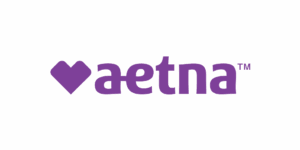
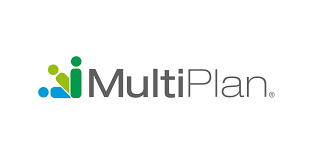

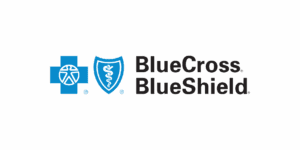
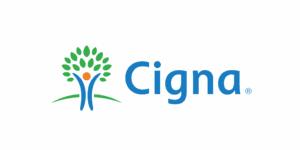







Admissions and Getting Started
Getting help should feel clear and private from the first minute. Your first step is a confidential call with an admissions specialist, who will conduct a brief screening to assess your safety, recent use, medications, and immediate needs. If capacity allows, we schedule a same-day assessment and provide simple arrival guidance. If you prefer, we can coordinate with a family member or clinician you designate.
To ensure a smooth check-in process, please bring your identification, insurance card, and current prescriptions in their original containers. Pack comfortable clothing and basic toiletries. Leave valuables at home. During your call, we will address any packing questions and note any accessibility or dietary needs so the team is prepared.
The first twenty-four hours focus on stabilization and orientation. You will meet with nursing staff, review your privacy rights, undergo a medical evaluation, and set early goals with your clinician. Vitals and hydration are checked routinely, meals are scheduled, and you will learn two or three grounding skills you can use the first night. Before the day ends, you will know your next check-in time, who is on your care team, and what tomorrow’s schedule looks like.
Insurance verification is straightforward and in plain language. We confirm benefits, authorizations, and any copays before admission to ensure there are no surprises.
You receive a clear summary that outlines the levels of care covered and any out-of-pocket estimates. If more than one option exists, we compare them side by side and help you choose the path that fits your timeline and budget.
From the first call to the first night, our goal is a simple start and a steady plan you can follow.
FAQs About Cognitive Behavioral Therapy in Tennessee
Start Care Now: CBT for Addiction in Tennessee
Ready to take the next step. Call Now for a confidential conversation with an admissions specialist. Verify Insurance to see your coverage and out-of-pocket estimates. Start Admissions to schedule your assessment, with same-day options when capacity allows. Ask About Availability to plan your arrival and lock in a steady session cadence. Your privacy comes first, and your plan will be clear, practical, and built around your real life.
Get Family Support Now
Supporting Families Through Recovery
We understand addiction affects the whole family. Our comprehensive family program helps rebuild trust and restore relationships.
Weekly Family Therapy Sessions
Educational Workshops
Support Groups
Communication Skills Training



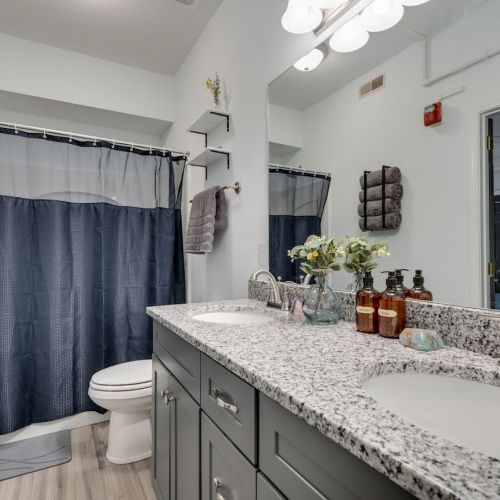

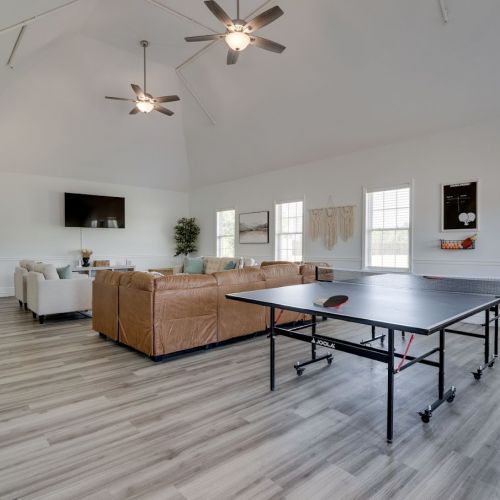





Medically Reviewed By:
Dr. Vahid Osman, M.D.Board-Certified Psychiatrist and Addictionologist
Dr. Vahid Osman is a Board-Certified Psychiatrist and Addictionologist who has extensive experience in skillfully treating patients with mental illness, chemical dependency and developmental disorders. Dr. Osman has trained in Psychiatry in France and in Austin, Texas. Read more.

Clinically Reviewed By:
Josh Sprung, L.C.S.W.Board Certified Clinical Social Worker
Joshua Sprung serves as a Clinical Reviewer at Tennessee Detox Center, bringing a wealth of expertise to ensure exceptional patient care. Read More
- Alcoholics Anonymous. (n.d.). Welcome to AA. Retrieved July 29, 2025, from1 rel=”external noopener noreferrer”2 https://www.aa.org/
- American Psychological Association. (n.d.). Trauma and PTSD resources. Retrieved July 29, 2025, from https://www.apa.org/topics/ptsd
- Associated Press. (n.d.). AP News. Retrieved July 29, 2025, from1 rel=”external noopener noreferrer”2 https://apnews.com/
- Crisis Text Line. (n.d.). Get help now. Retrieved July 29, 2025, from https://www.crisistextline.org/
- Harvard Kennedy School – Belfer Center. (n.d.). Programs on international security and diplomacy. Retrieved July 29, 2025, from https://www.belfercenter.org/
- Harvard Program in Refugee Trauma. (n.d.). Training and research for conflict-affected populations. Retrieved July 29, 2025, from https://hprt-cambridge.org/
- International OCD Foundation. (n.d.). Obsessive Compulsive Disorder support and resources. Retrieved July 29, 2025, from 1 rel=”external noopener noreferrer”2https://iocdf.org/
- International Society for Traumatic Stress Studies. (n.d.). About ISTSS. Retrieved July 29, 2025, from https://www.istss.org/
The Joint Commission – The Gold Seal of Approval® signifies that Tennessee Detox Center meets or exceeds rigorous performance standards in patient care, safety, and quality. It reflects a commitment to continuous improvement and clinical excellence.
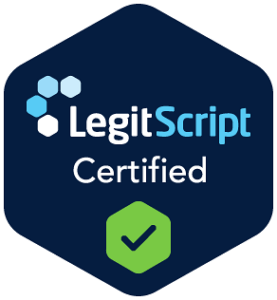
LegitScript Certified – Confirms that Tennessee Detox Center operates in full compliance with laws and regulations, and meets high standards for transparency and accountability in addiction treatment marketing.
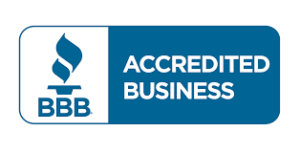
BBB Accredited – Demonstrates ethical business practices, commitment to customer satisfaction, and a trusted reputation within the community.
Psychology Today Verified – Indicates that Tennessee Detox Center is listed on Psychology Today, a trusted directory for verified mental health providers and treatment centers.
HIPAA Compliant – Ensures all patient health information (PHI) is protected and managed in accordance with strict federal privacy and data security standards.
ASAM Member – Tennessee Detox Center is a proud member of the American Society of Addiction Medicine (ASAM), reflecting a commitment to science-driven and evidence-based treatment standards.
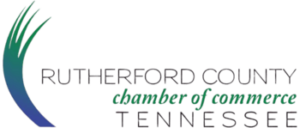
Rutherford County Chamber of Commerce – Membership signifies active participation in the local community and support for regional growth and civic collaboration.
Holistic Detox Services
Evidence-Based Treatment
Hear directly from those who have walked the path to recovery. Our patients’ stories highlight the compassionate care, effective programs, and life-changing support they’ve experienced. Let their journeys inspire you as you take your first steps toward healing.




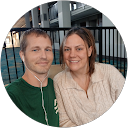





Thank you all so much!




















The facility itself is clean, well-maintained, and equipped with all the necessary amenities to provide a serene and supportive environment.
What truly stands out is the personalized approach to care. The team developed a treatment plan tailored to my specific needs, incorporating both medical and holistic therapies. This comprehensive approach not only addressed my physical withdrawal symptoms but also supported my mental and emotional well-being.
The counselors and therapists offer a range of therapies that helped me understand the root causes of my addiction and develop effective coping strategies. Group therapy sessions provided a safe space to share experiences and gain insights from others on similar journeys.
Overall, my experience with this medical detox program was life-changing. The compassionate and skilled staff, combined with the personalized treatment approach, provided me with the foundation I needed for a successful recovery. I highly recommend this facility to anyone seeking a safe and supportive environment for detox and recovery.
But it's the people who make this place truly special. The staff, they've been there, they understand the struggle. No judgment, just support, encouragement, and a genuine desire to help you heal. They treated me like an old friend, even though I was just visiting for my buddy.
They've got a whole range of therapies to help you on your journey – individual counseling, group sessions, and even a fitness center to get you moving again. It's not just about detox. It's about rebuilding your life from the ground up.
My friend, the owner, he's living proof that this place works. He poured his heart into creating a haven for those seeking recovery, and his passion shines through in every detail.
So, if you're ready to take that first step, this is the place. Trust me, they'll walk beside you every step of the way.


